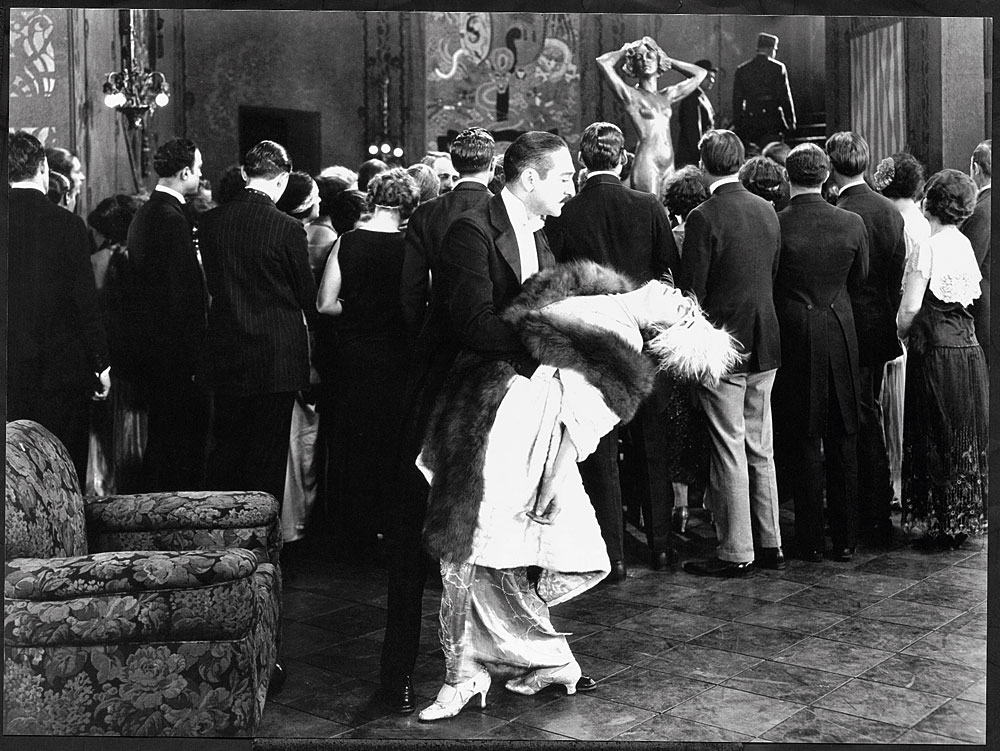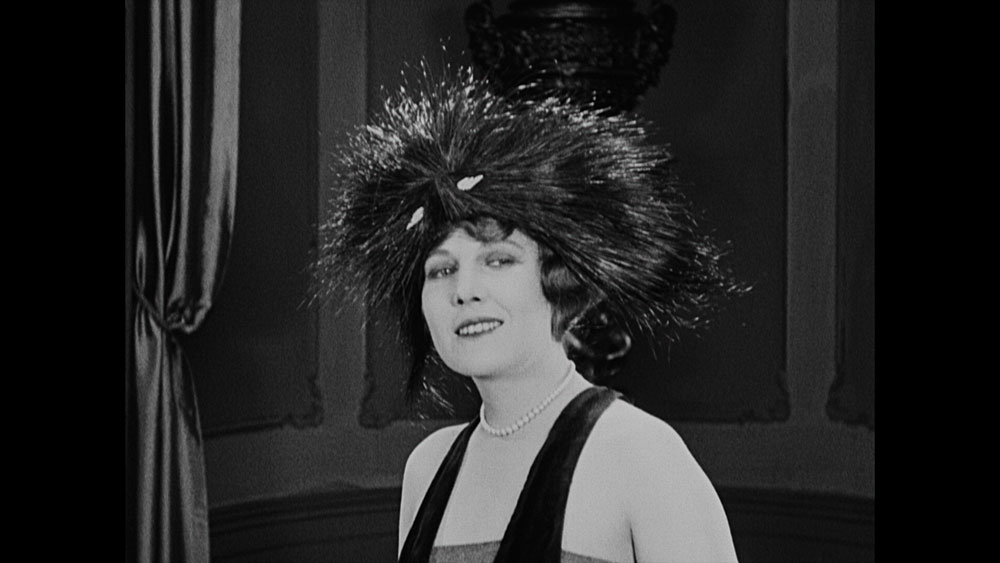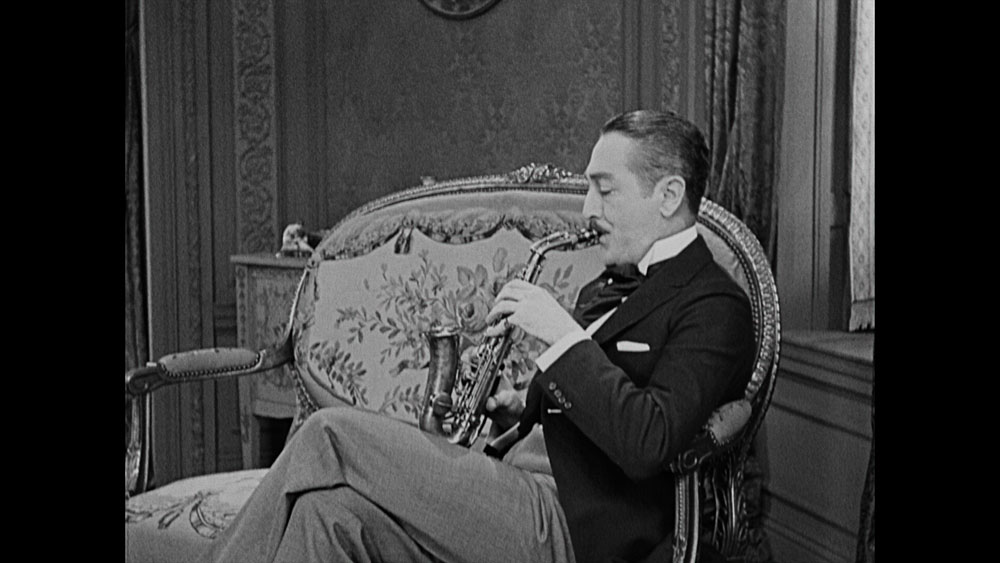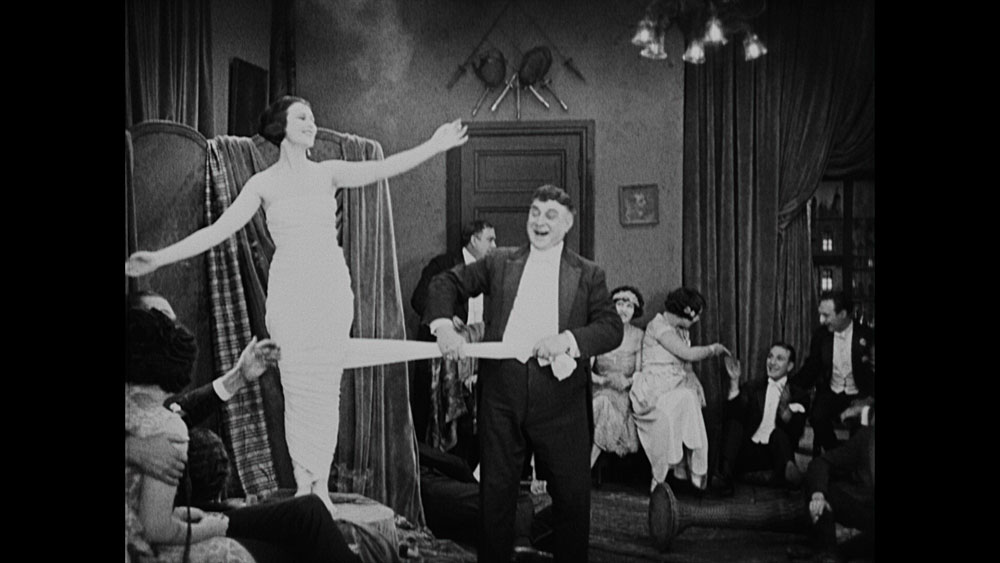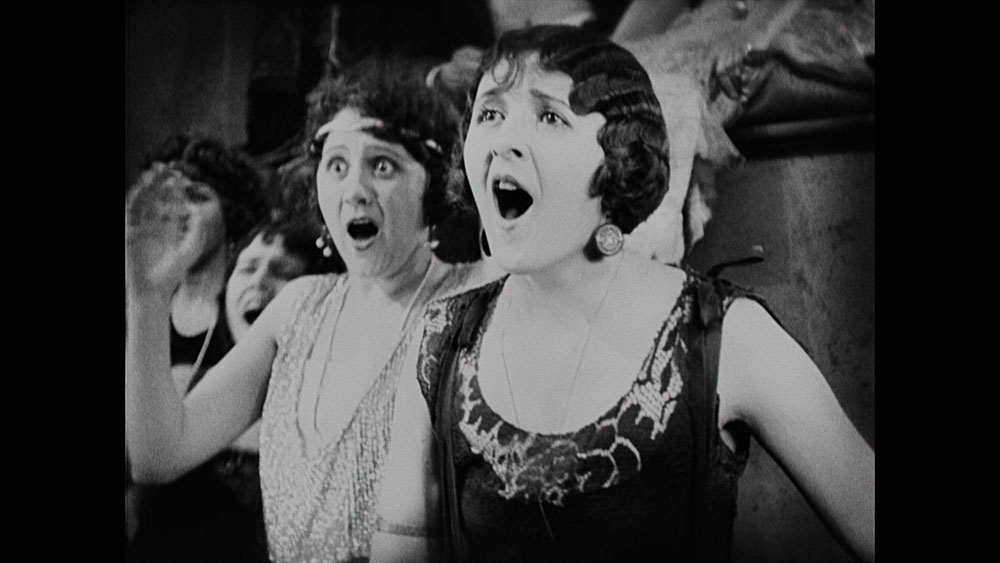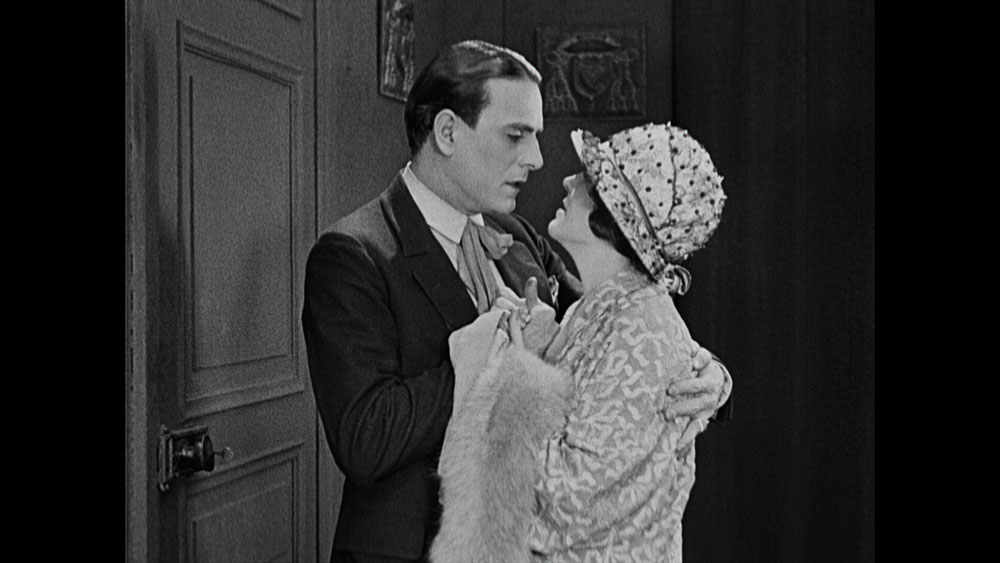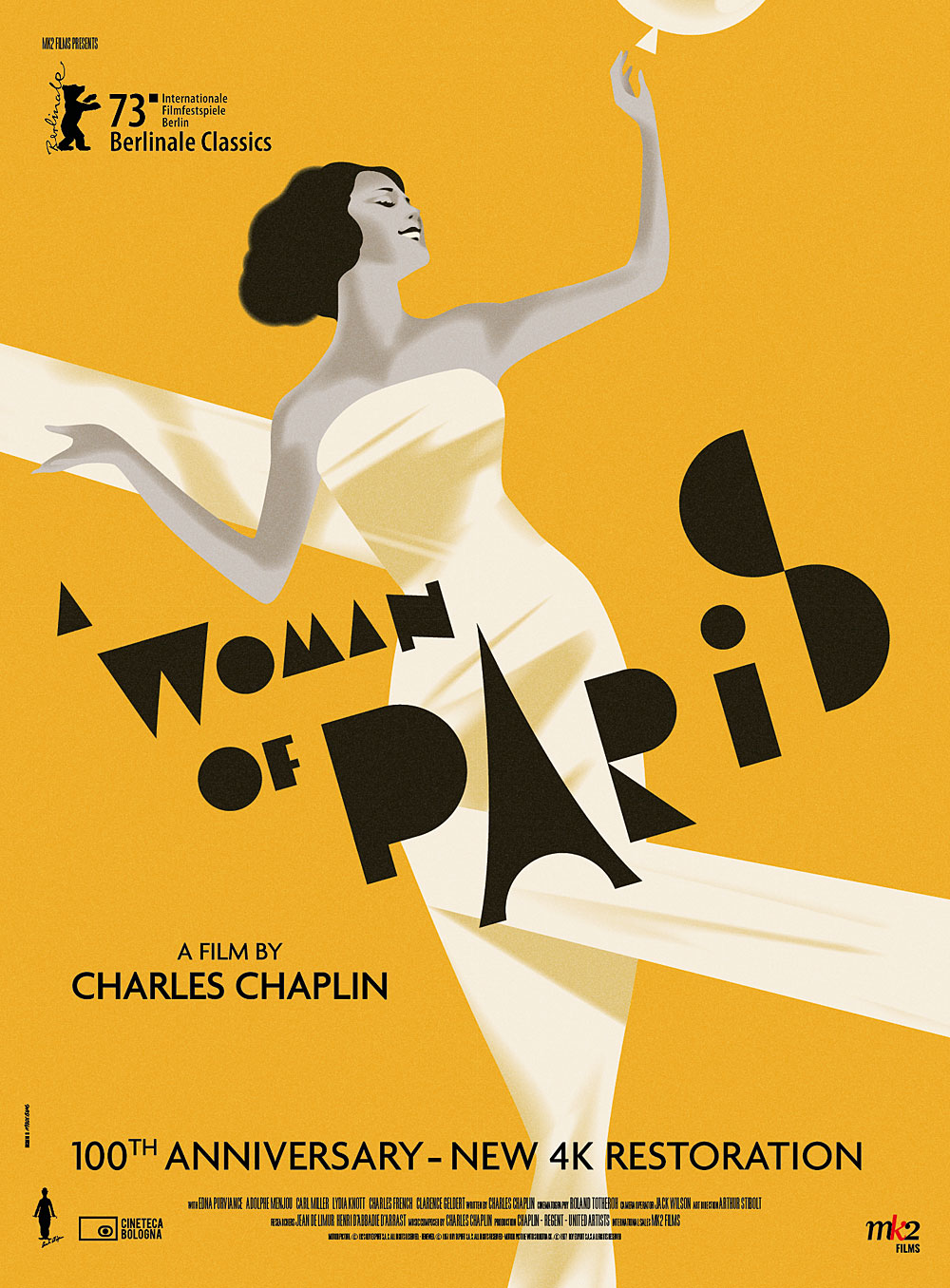Against the wishes of their tyrannical parents, Jean and Marie decide to elope to Paris. The sudden death of Jean’s father makes it impossible for him to meet her at the station, and Marie heads for Paris alone. A year later, Jean finds her in the arms of Pierre, a rich and decadent playboy… and tragedy ensues...
“In my first serious drama, A Woman of Paris, I’ve striven for realism, true to life. What you will see is life as I personally see it – the beauty – the sadness – the touches – the gaiety, all of which are necessary to make life interesting. /…/ My first thoughts have been to entertain you. The story is intimate, simple and human, presenting a problem as old as the ages – showing it with as much truth as I am allowed to put into it – giving it a treatment as near realism as I have been able to devise. I do not wish that A Woman of Paris should appear as a preachment, nor am I expounding a sort of philosophy, unless it be an appeal for a better understanding of human frailties.”
- Charles Chaplin
“At first it was simply a job and a good part. Within a few days I realized that I was going to learn more about acting from Chaplin than I had ever learned from any director. /…/ The word ‘genius’ is used very carelessly in Hollywood, but when it is said of Chaplin, it is always with a special note of sincerity. If Hollywood has ever produced a genius, Chaplin is certainly first choice.”
- Adolphe Menjou
“Discovering A Woman of Paris on the big screen must have been powerful, very powerful.”
- Martin Scorsese
“A masterpiece of simplicity and naturalness /…/ told in a new and distinctive screen form.”
Motion Picture News and Exhibitors Trade Review, 1923
“There is more real genius in Charles Chaplin’s A Woman of Paris than in any picture I have ever seen /…/ Charles Chaplin has proved many times that he understands humanity; he has leavened his hilariously broad comedy with elements of poignant tragedy. He has caught and conveyed the contrast between joy and sorrow which makes existence on this terrestrial ball as interesting as it is.”
- Robert Sherwood, New York Herald, 1923
“Mr. Chaplin /…/ has not done anything radical or anything esoteric. He has merely used his intelligence to the highest degree, an act which has ceased to be expected of motion pictures people for many years. /…/ A Woman of Paris has the one quality almost every other motion picture that has been made to date lacks – restraint. /…/ The result is a picture of dignity and intelligence and the effect is startling because it is so unusual.”
- Exceptional Photoplays, 1923
“[Chaplin’s] genius lies in the power to draw a character so vividly by showing its relation to everyday affairs that every member of the audience will supply for himself its right reaction to matters of moment. Chaplin makes the spectator’s imagination a creative force in all his drama. /…/ A Woman of Paris is a remarkable film, an historic film, a film to see and consider.”
- CA Lejeune, The Guardian, 1925
“One does not truly know the work of Chaplin until one has had the good fortune to see this rediscovered masterpiece.”
- Vincent Canby, The New York Times, 1978
“/…/ the film is anything but a morality play; it digs into and transcends the moral conventions and bourgeois respectability which Chaplin had already targeted in his comedies. It was praised by the critics for its sophisticated psychological analysis, “worthy of Ibsen or Maupassant”, and for the “Cartesian scepticism” which elevated its author to the status of “philosopher of human nature”. One hundred years after its release, it remains a Chaplin film ripe for rediscovery.”
- Cecilia Cenciarelli, Cinema ritrovato, 2023
“The press was ecstatic. Neither Chaplin nor anyone else had ever received such unanimous praise for a film. But alas the audience did not share the enthusiasm of the critics. Never had a Chaplin film done such bad business. It seemed that people were not prepared to pay their cents to see a film in which their idol did not appear. Few even recognised him in his bit part as the porter - though these few seconds were a high spot wherever the film was shown.
At the very end of his life, Chaplin tried again with the film. At 86 years old, aided by the arranger Eric James, he created and recorded a new musical score. It was to be mark his last days in a film studio and the final work in an astonishing creative life that had spanned eight decades. Perhaps too it was a kind of reconciliation with a film which the public had rejected, though he himself remained intensely and justifiably proud of it.”
- David Robinson
